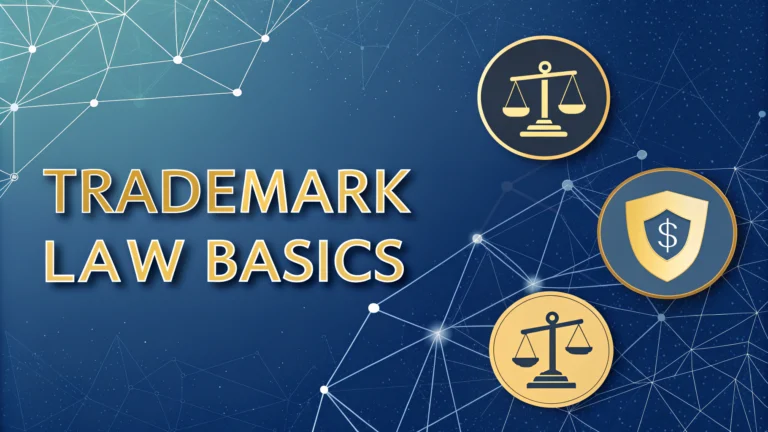Trademark law protects unique business names, logos, and brands from unauthorized use by other entities in commercial markets.
A trademark provides legal rights to exclusive identification of goods or services within specific industries and geographical regions.
Businesses can register trademarks at federal, state, and international levels to secure comprehensive legal protection for their brand identity.
Domain Name Trademark Considerations
Domain names can potentially infringe on existing trademarks if they create consumer confusion or dilute a brand’s distinctive character.
Website owners must conduct comprehensive trademark searches before registering domains to prevent potential legal conflicts.
Common trademark infringement scenarios include:
- Using similar brand names
- Mimicking established logos
- Creating confusingly similar domain names
Protecting Your Domain and Trademark
Proactive trademark registration helps prevent unauthorized use of your brand’s digital and physical identity.
Domain owners should:
- Perform thorough trademark searches
- Register variations of brand names
- Monitor potential infringements
Legal mechanisms like UDRP (Uniform Domain Name Dispute Resolution Policy) provide structured processes for resolving domain name trademark disputes.
International Trademark Considerations
Global domain strategies require understanding trademark laws across different jurisdictions and international registration protocols.
Multinational businesses should consider registering trademarks in key markets to prevent potential intellectual property conflicts.
Key international trademark registration systems include:
- Madrid Protocol
- European Union Intellectual Property Office
- World Intellectual Property Organization (WIPO)
Potential Legal Consequences
Trademark infringement can result in significant financial penalties, domain seizures, and mandatory brand name changes.
Potential legal actions include cease and desist orders, monetary damages, and forced domain transfers.
Businesses must prioritize trademark compliance to maintain brand integrity and avoid costly legal disputes.
Technology and Trademark Management
Advanced digital tools now enable more sophisticated trademark monitoring and protection strategies. Artificial intelligence and machine learning algorithms can scan online platforms and detect potential trademark violations with unprecedented speed and accuracy.
Cloud-based trademark management systems allow businesses to track global trademark portfolios, set renewal alerts, and manage intellectual property assets across multiple jurisdictions. These technologies streamline complex administrative processes and reduce the risk of inadvertent trademark lapses.
Blockchain technology is emerging as a promising solution for creating immutable records of trademark registrations and transfers. By providing transparent and secure documentation, blockchain can help resolve disputes and establish clear ownership trails for intellectual property.
Cybersecurity technologies play a crucial role in preventing domain name hijacking and protecting trademark integrity. Advanced encryption and authentication protocols help businesses secure their digital brand assets against unauthorized modifications or transfers.
Small Business Trademark Strategies
Small businesses face unique challenges in trademark protection, often operating with limited legal resources. Cost-effective strategies are essential for maintaining brand integrity without incurring prohibitive expenses.
Initial trademark searches can be conducted using free online databases like the USPTO trademark database. These preliminary investigations help entrepreneurs assess potential naming conflicts before investing in formal registration processes.
Many jurisdictions offer simplified trademark registration procedures for small enterprises, reducing bureaucratic complexity and associated legal costs. Entrepreneurs should research local intellectual property offices for specific small business trademark programs.
Collaborative legal services and online trademark registration platforms have democratized intellectual property protection. Fixed-fee trademark registration services provide accessible options for small businesses seeking comprehensive brand protection.
Future of Trademark Law
Emerging digital technologies are transforming traditional trademark protection paradigms. Artificial intelligence, machine learning, and advanced data analytics are creating more sophisticated trademark monitoring and enforcement mechanisms.
The rise of global digital marketplaces necessitates more harmonized international trademark regulations. Policymakers are working to develop consistent frameworks that balance intellectual property rights with digital innovation and cross-border commerce.
Cryptocurrency and blockchain technologies are challenging existing trademark legal structures, requiring innovative approaches to intellectual property management. Smart contracts and decentralized verification systems may revolutionize trademark registration and enforcement processes.
Conclusion
Trademark protection represents a critical component of modern business strategy, extending far beyond traditional legal compliance. As digital landscapes evolve, businesses must adopt proactive, technology-enabled approaches to safeguarding their brand identities.
Successful trademark management requires continuous learning, strategic planning, and a comprehensive understanding of both legal frameworks and technological innovations. Enterprises that prioritize robust intellectual property strategies will be better positioned to navigate increasingly complex global markets.

